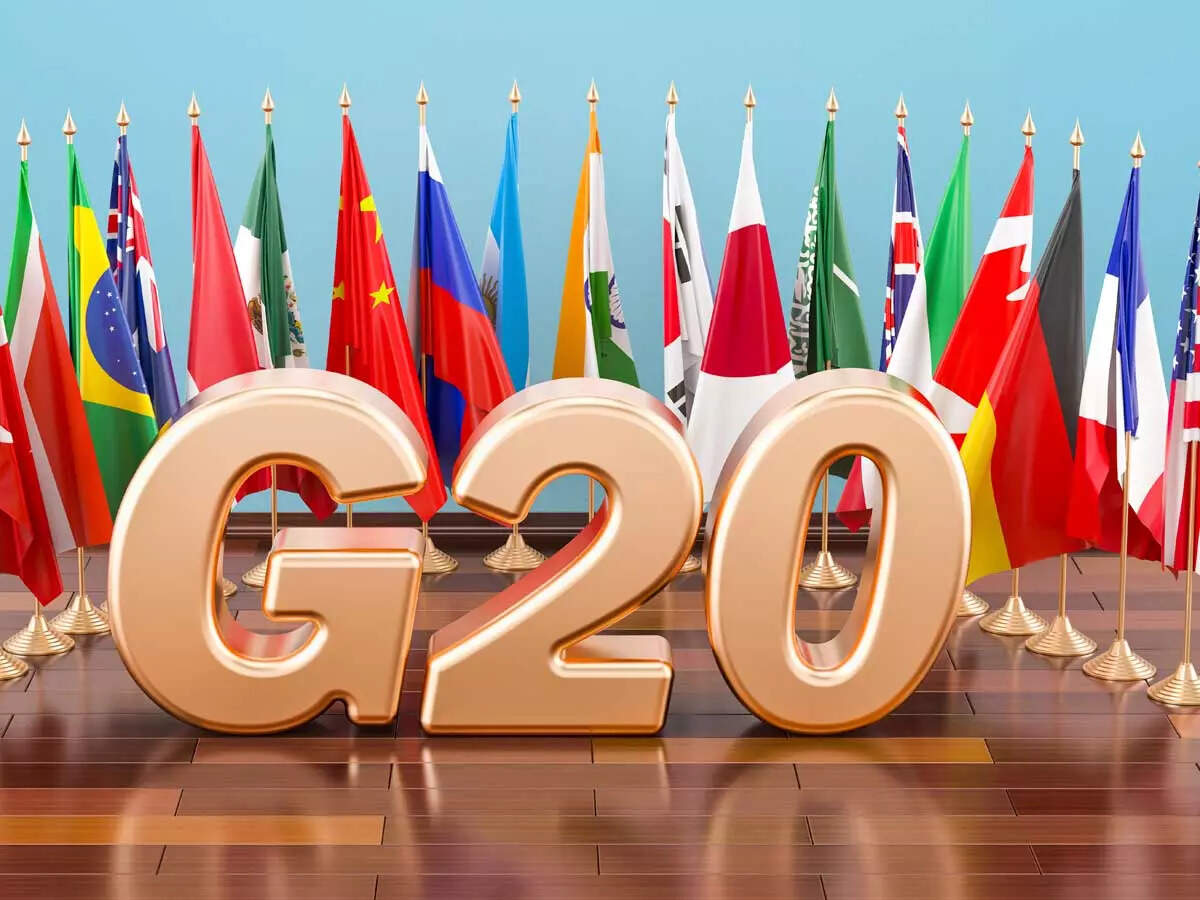
As we move into the third decade of 21st century, digitalisation has been the pioneer in aiding the post-pandemic economic recovery. The shifting contours of the global economy into the digital space have opened new frontiers for development.
According to a recent paper by Reserve Bank of India, “India’s digital economy grew 2.4 times faster than the Indian economy, with strong forward linkages to non-digital sectors; digital output multiplier has increased over time, highlighting the role of investments to drive growth and 62.4 million (11.6%) workers are employed in the digitally dependent economy.” India’s digital transformation was accelerated by the ‘Digital India’ campaign. The role of digital economy is also becoming increasingly important for the G20, as it offers a range of opportunities for economic growth, job creation, and innovation.
The G20 member countries in the past have acknowledged the significance of the digital economy and taken action to benefit from it. This includes initiatives such as the G20 Digital Economy Working Group (DEWG), which aims to facilitate collaboration between G20 members in promoting digital transformation.
The DEWG originated with the formation of the G20 Digital Economy Task Force (DETF) in 2017 during the German G20 presidency with a mandate to discuss the implementation of an interconnected, protected, and safe digital technology to develop an inclusive, resilient, and sustainable digital economy. Ever since, the DEWG has been at the pivot of shaping global policy discourse.
DPI as a Public Good
The development of Digital Public Infrastructure (DPI) in India has demonstrated that countries and developing economies can leapfrog traditional barriers to large-scale social and digital transformation at an affordable cost.
DPI plays a crucial role in enhancing government-citizen engagement by empowering citizens and ensuring ease of governance, business and living. The Prime Minister described DPI in the Bali G20 summit as “the most remarkable change of our era, the proper use of which can be a force multiplier in the decades-long global fight against poverty and challenges of the future”. India, as the G20 President in 2023, will look forward to elucidating the benefits of DPI and offer a cohesive framework to build similar DPI in G20 members and by Low- and Middle-Income Countries (LMICs).
Each country with its unique set of challenges will require DPI of tailored needs. However, the basic functionality is inherently similar everywhere, opening up opportunities for global cooperation. As the chair, India will showcase its experience, best practices and the challenges in the domain to help build such DPIs by proposing a common framework that also suits their individual needs.
Global Digital Economy
The alarming number of cyber security incidents in the economic and financial fields is a serious issue that needs G20 cooperation. To effectively harness the global digital economy’s opportunities, ensuring its security remains vital.
A robust cyber security framework and a need for better awareness about cyber security and safety in the current digital age is the need of the hour.
The DEWG at the G20 offers a fitting opportunity for India and the member states to discuss the security challenges in the digital economy along with developing curated responses to possible threats of the future.
A Future Ready Workforce
In today’s digitalised economy, the availability of a workforce with digital skills ranging from entry-level to advanced skills remains a fundamental prerequisite for development. As per the World Economic Forum, by 2022, the core skills required to perform most roles will, on average, change by 42%. DEWG, in the past, has acknowledged this challenge and has come up with a consensus on the need for comprehensive solutions for digital skilling.
Digital skilling is a critical concern for each member country. However, due to varying stages of development, inherent digital skill gaps still exist across G20 societies.
Therefore, the changing nature of technology and its diffusion across sectors implies a greater need for coordination across countries to impart futuristic skills that are easily accessible to a broad population base. India’s Presidency in 2023 provides an opportunity for the G20 to debate on this topic and come up with strategies to build re-skilling and upskilling programmes.
India’s Opportunity to Lead
India’s digital economy has seen tremendous growth in the past decade; a growing user base of 800 million plus internet users, over 107 unicorns with a valuation of $340.79 billion and a system of over 1.3 billion digital identities transforming public service delivery, the country is poised to lead global conversation on technology innovation, digital public infrastructure, and other digital solutions. As India takes up G20 presidency, India’s success in creating a citizen-centric digital economy will be displayed as a model of creative use of technology to be replicated in other parts of the world.
(Author is Secretary, Ministry of Electronics & IT)